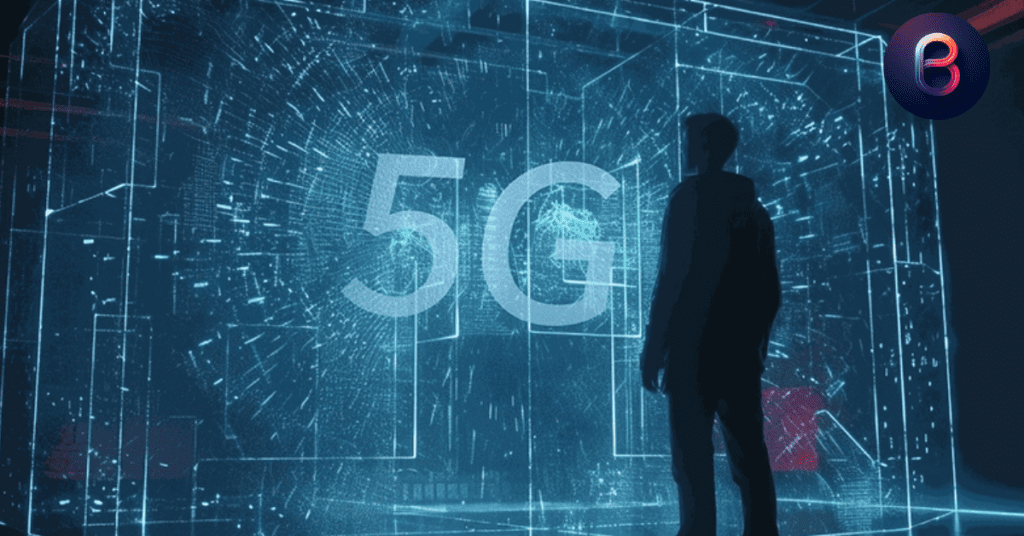Welcome to the exciting world of 5G technology! Imagine a world where your phone connects to the internet faster than ever, letting you download movies in seconds and play online games without any lag. That’s what 5G brings to the table. It’s the fifth generation of mobile networks, and it’s changing how we live, work, and play. But what about the future? This article explores how 5G and even more advanced technologies will shape our connected world, bringing amazing opportunities and some challenges along the way. Let’s dive in and discover what’s next!
Understanding 5G Technology
5G technology is the fifth generation of mobile networks. It’s like an upgrade from 4G, making everything faster and better. But what exactly makes 5G so special? First, it can send and receive data much quicker, which means you can download games and movies in seconds instead of minutes. Imagine being able to watch videos without any annoying pauses!
Another cool thing about 5G is its low latency. This means there’s very little delay when you send or receive information. For example, when you play online games, you won’t have to wait for your character to move; everything happens in real time. Plus, 5G can connect many devices at once, which is super important as more smart gadgets join our homes.
One of the key features of 5G is its use of special radio waves called millimeter waves. These waves can carry a lot of data but don’t travel very far. This is why 5G needs many more towers than previous networks. This new technology allows us to enjoy faster internet connections, making our lives more connected and exciting.
Also Check: How to Track Your Bharat Gas Booking Status Quickly
Economic Impact of 5G
The arrival of 5G technology is expected to have a huge impact on our economy. Experts believe that 5G could contribute around $13.2 trillion to the global economy by 2035. That’s a lot of money! This means that 5G will not only make our internet faster but also create new jobs and opportunities for businesses.
For example, industries like manufacturing and healthcare can benefit a lot from 5G. Factories can use 5G to automate processes and improve efficiency, while hospitals can use it to enhance telemedicine services. This way, doctors can treat patients from anywhere in the world.
However, there are costs involved in building the necessary 5G infrastructure. Telecom companies need to invest in new towers and technology to support 5G. But the long-term benefits, like increased productivity and innovation, are worth it.
5G Applications and Use Cases
5G technology opens up a world of exciting possibilities. In industries, we can see how it will revolutionize the way things work. For example, smart factories can use 5G to connect machines and automate tasks. This means fewer mistakes and faster production.
In our daily lives, 5G will make gaming more enjoyable. Imagine playing your favorite online games with no lag! It will also enhance experiences like virtual reality (VR) and augmented reality (AR), allowing us to explore new worlds and interact with them in real time.
5G can also improve our homes. With smart devices connected to the 5G network, you can control everything from your lights to your thermostat right from your phone. This makes life easier and more convenient.
In public services, 5G will help create smart cities. Imagine traffic lights that change based on real-time traffic or emergency services that can respond faster because they have better data. This will lead to safer and more efficient cities.

5G Infrastructure and Deployment Challenges
Even though 5G technology is amazing, building the needed infrastructure can be challenging. Telecom companies must install many new towers to support the 5G network. This is because 5G uses high-frequency waves that don’t travel as far as those used in previous networks.
This means more towers are required, which can be costly. There are also challenges in rural areas, where it may be harder to install these towers. Many communities may still lack good internet service, which is a problem that 5G could help solve.
Additionally, governments play a significant role in supporting 5G deployment. They need to create policies that help build the necessary infrastructure and encourage companies to invest in 5G technology. Working together, we can make sure everyone benefits from this exciting new technology.
Beyond 5G: What’s Next?
What comes after 5G technology? The answer is 6G! Experts believe that 6G will be even faster and more powerful than 5G. It may use new technologies like terahertz communication, allowing for super-fast data transfer.
As we look to the future, we can expect amazing advancements in connectivity. 6G will likely make everything we do online even better, from streaming movies to virtual reality experiences. The goal is to create a world where everyone has access to lightning-fast internet, no matter where they are.
Social and Environmental Impacts
5G technology can also positively impact our society and the environment. With better connectivity, we can gather real-time data to help with sustainability efforts. For example, smart sensors can monitor energy use, helping us save power and reduce waste.
5G can improve disaster response, allowing first responders to access critical information quickly. This could save lives during emergencies, making our communities safer.
However, with all these advancements, there are also concerns. People worry about privacy and the digital divide, where not everyone has equal access to technology. It’s essential to address these issues to ensure that 5G benefits everyone.
Security Considerations in a Connected World
As we become more connected with 5G technology, security becomes a bigger concern. With so many devices online, there is a risk of cyberattacks. Hackers could target networks to steal personal information or disrupt services.
To keep everyone safe, it’s crucial to implement strong security measures for 5G networks. This includes protecting user data and ensuring that only authorized devices can connect to the network.
Governments and companies need to work together to create security standards and educate users about safe practices. By doing this, we can enjoy the benefits of 5G while staying safe online.
Future of Work and Education in a 5G World
The world of work and education is changing with 5G technology. Remote work has become more popular, and with 5G, it’s easier to stay connected with colleagues. Video calls will be smoother, and you can share large files instantly, making teamwork more effective.
In education, 5G opens up new opportunities for learning. Students can access online resources quickly and participate in virtual classrooms without delays. This means that education can be more flexible and accessible for everyone, no matter where they are.
As we move forward, 5G technology will play a vital role in shaping how we work and learn, allowing us to connect in ways we never thought possible.
Also Check: Expert Property Management: Elevate Your Dubai Investment
FAQs
What is 5G technology?
5G technology is the fifth generation of mobile networks, designed to provide faster internet speeds, lower latency, and the ability to connect more devices simultaneously compared to its predecessor, 4G. It enables a wide range of applications, from improved mobile internet to advanced technologies like autonomous vehicles and smart cities.
How does 5G work?
5G works by utilizing higher frequency radio waves, known as millimeter waves, which can carry more data than previous generations. These waves, however, don’t travel as far, which is why more antennas and infrastructure are needed for proper coverage.
Conclusion
In conclusion, 5G technology is not just about faster internet; it’s about transforming our lives in countless ways. From improving industries and enhancing our everyday experiences to addressing challenges and creating new opportunities, 5G is paving the way for a more connected world.
As we look to the future, it’s essential to embrace these changes and work together to ensure that everyone benefits from the amazing potential of 5G and beyond. The future is bright, and we are just getting started!





